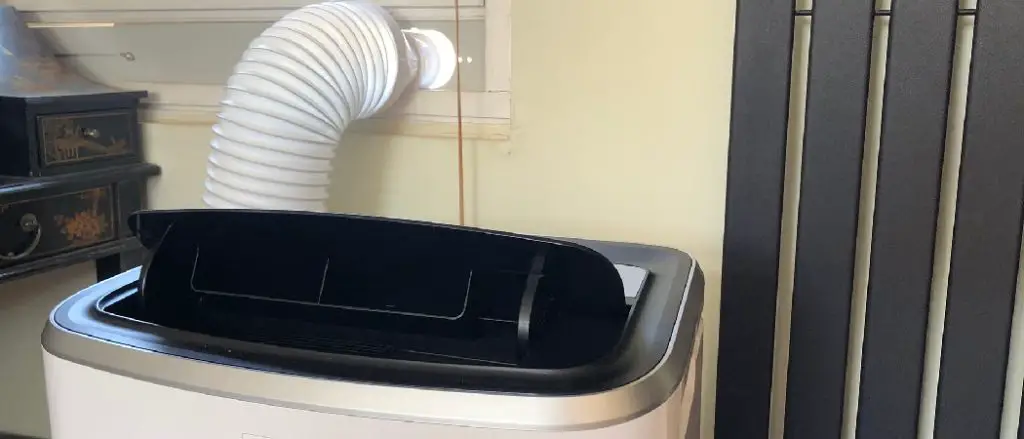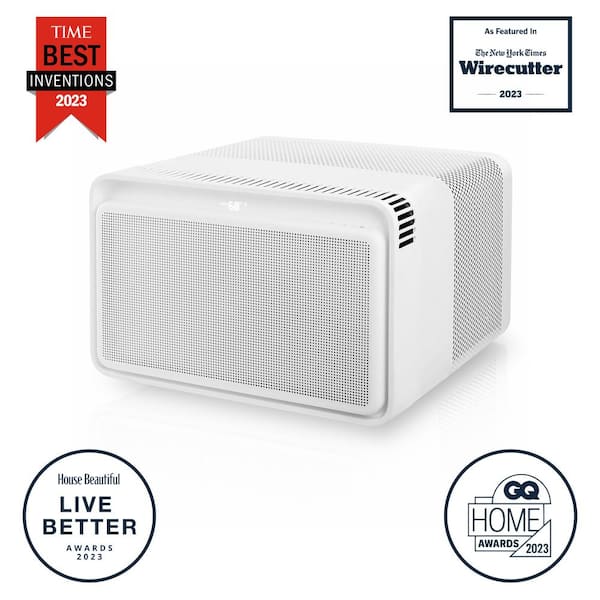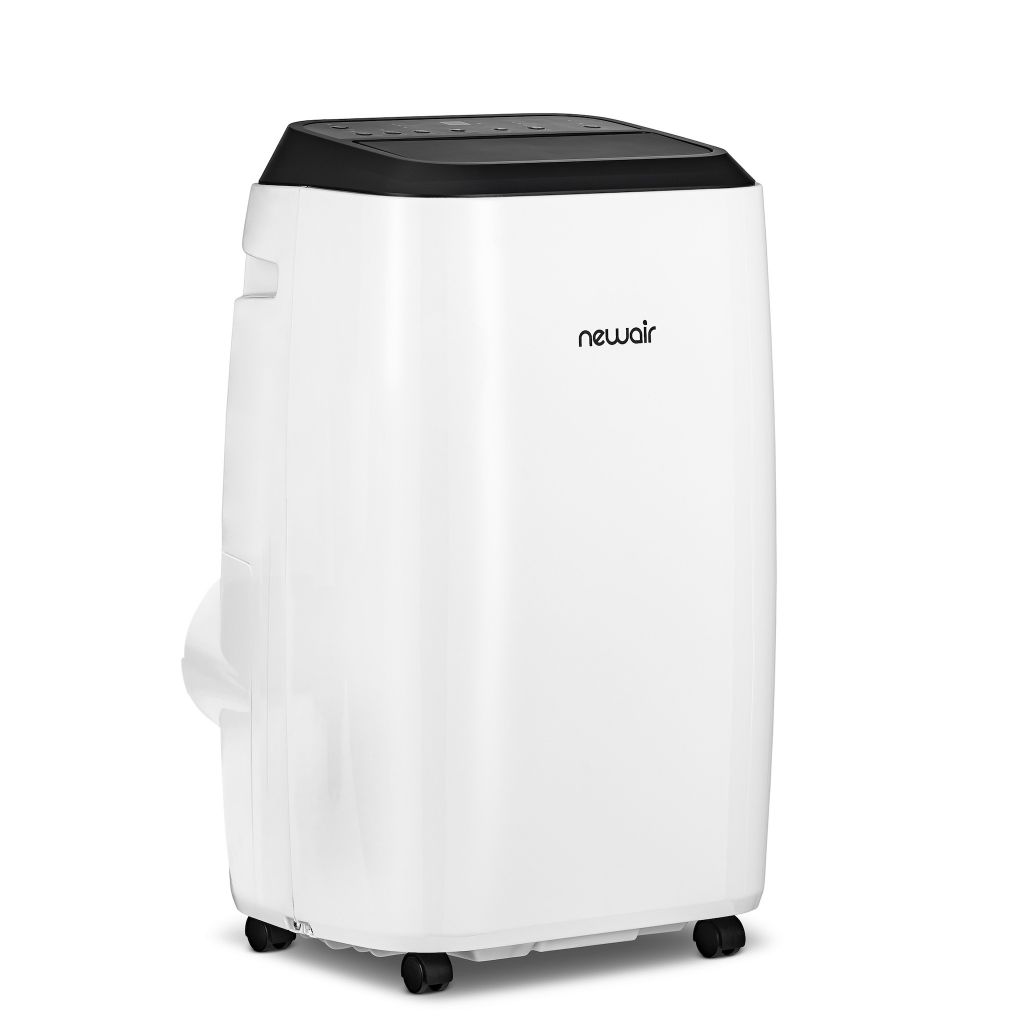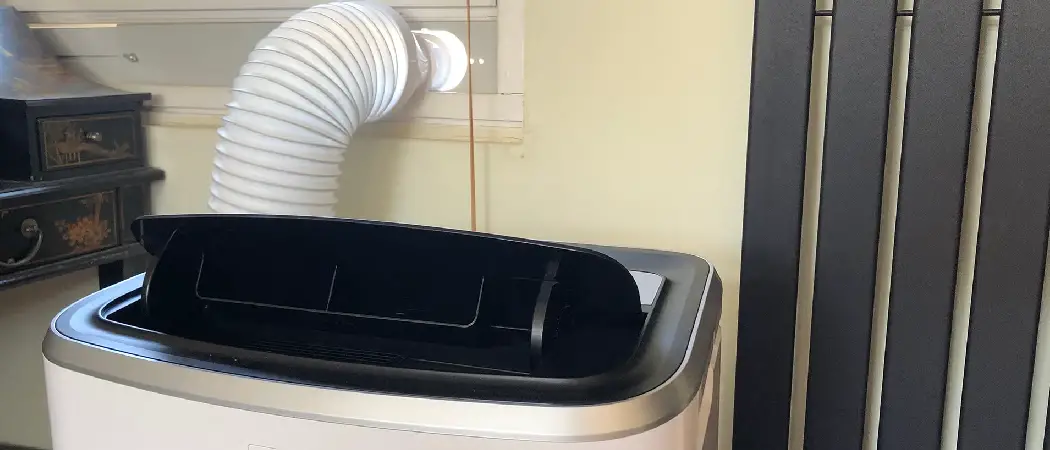To make a portable AC quieter, place it on a stable surface and ensure proper airflow by keeping it away from walls and furniture. Portable air conditioners provide a convenient way to cool specific areas without the expense and installation hassle of central air conditioning.
However, they can sometimes be noisy and disruptive, especially when used in small spaces like bedrooms or offices. Fortunately, there are several ways to make a portable AC quieter. By following a few simple steps, such as placing the unit on a sturdy surface, ensuring proper airflow, and utilizing soundproofing materials, you can enjoy a more peaceful and comfortable environment without sacrificing the cooling benefits of your portable AC.
We will explore effective methods to make your portable AC quieter, allowing you to enjoy optimal comfort without the excessive noise.

Understanding The Noise Sources
When it comes to making a portable AC quieter, the first step is identifying the sources of noise.
Decoding The Impact
Unwanted noise can disrupt your peace and affect your comfort, so it’s crucial to understand the impact of each noise source.

Simple Solutions
Looking to reduce the noise from your portable AC? Consider placing it on a sound-absorbing mat or investing in a noise-reducing enclosure. Additionally, regular cleaning and maintenance of the unit’s fan and filters can significantly reduce its operational noise.
Placement Strategies
One of the simplest solutions to make your portable AC quieter is to strategically place it in your room. By considering the placement of your AC unit, you can minimize its noise impact.
- Avoid placing the portable AC directly against a wall or in a corner. This can cause the sound waves to bounce back and amplify the noise.
- Position the AC at least two feet away from any walls or furniture. This will help in reducing the reverberation of noise.
- Try placing your AC on a stable surface such as a table or on a rubber mat. This will help to absorb some of the vibrations and reduce noise.
- Consider keeping the AC unit away from areas where people spend most of their time, such as a TV or seating area.
Enhancing Insulation
Another effective way to make your portable AC quieter is by enhancing insulation in your space. Insulation can help to absorb noise and prevent it from spreading.
- Caulk or weatherstrip any gaps or cracks in windows and doors. This will help to create a soundproof barrier and minimize noise leakage.
- Add curtains or blinds to your windows. These can act as additional sound barriers and help to absorb noise.
- Consider using thick rugs or carpets on the floor. These can help to muffle sound and prevent it from reflecting off hard surfaces.
- Place acoustic panels on the walls. These panels are designed to absorb sound and reduce echo, making your room quieter.
Utilizing Soundproofing Materials
In addition to insulation, utilizing soundproofing materials can significantly reduce the noise from your portable AC.
- Use soundproof curtains or acoustic blankets. These are specially designed to absorb sound and block external noise sources.
- Apply soundproof foam or insulation to the walls or window frames near the AC. This will help to dampen vibrations and reduce noise transmission.
- Consider using a soundproof box or enclosure for your AC unit. This box can help to contain the noise and prevent it from spreading throughout the room.
- Place rubber or foam pads under the AC unit. These pads can help to isolate vibrations and reduce noise caused by the unit’s compressor.
Regular Maintenance
Lastly, performing regular maintenance on your portable AC can contribute to reducing noise levels.
- Clean or replace the air filters regularly. Clogged or dirty filters can cause the AC unit to work harder and produce more noise.
- Inspect the AC unit for any loose parts or screws. Tighten them if necessary to minimize rattling noises.
- Keep the AC unit well lubricated. Lack of lubrication can cause friction and result in increased noise levels.
- Ensure proper ventilation for the AC unit. Blocked vents can lead to reduced airflow, resulting in louder operation.
Diy Vs. Professional Options
Making a portable AC quieter can greatly enhance your comfort, but deciding whether to pursue a DIY solution or hire professionals requires careful consideration. Understanding the feasibility and cost analysis of each option is crucial in making the best choice for your situation.
Assessing Feasibility
Before embarking on any improvement project, it’s essential to assess the feasibility of DIY and professional options. Factors such as your technical skills, tools and equipment required, as well as the complexity of the task must be considered.
Cost Analysis
Evaluating the cost of DIY versus professional services is a vital step in the decision-making process. Not only should you consider the immediate financial outlay, but also the potential for long-term savings and the impact on the overall performance of the portable AC.

Technological Innovations
In the realm of portable air conditioners, technological innovations have greatly contributed to making these cooling devices quieter, enhancing the overall user experience. Let’s explore how advancements in technology have led to the development of quieter AC models and the incorporation of smart noise reduction features.
Silent Ac Models
Portable AC units now come in silent models, designed with noise-reducing technology to operate quietly and efficiently. These models offer whisper-quiet operation, allowing users to enjoy cool air without disruptive noise.
Smart Noise Reduction Features
Modern portable ACs are equipped with smart noise reduction features such as dual-inverter compressors and variable speed fans. These innovations help in reducing noise levels by adjusting the compressor speed and fan settings dynamically.
Environmental Impact
The environmental impact of portable AC units is a crucial consideration when seeking to make them quieter. By addressing energy efficiency considerations, we can minimize the negative effects these units can have on the environment. Taking steps to reduce their power consumption and noise levels can significantly contribute to a greener and more sustainable future.
Energy Efficiency Considerations
1. Opt for Energy Star certified models: Selecting a portable AC unit with an Energy Star certification ensures that it meets stringent energy efficiency standards. These units are designed to minimize energy consumption and reduce greenhouse gas emissions.
2. Size matters: Choosing the correct-sized unit for your space is crucial for energy efficiency. An oversized unit will use excess energy to cool a smaller area, while an undersized unit may strain to achieve the desired temperature, leading to energy wastage. Refer to the manufacturer’s guidelines or consult with a professional to determine the appropriate size for your needs.
3. Insulate your surroundings: Proper insulation of your room or space can significantly improve energy efficiency. Seal any cracks or gaps around windows and doors, ensuring your AC unit isn’t fighting against hot or cold air infiltration, which contributes to increased energy consumption.
4. Keep filters clean: Regularly cleaning or replacing the filters in your portable AC unit improves its efficiency by allowing for better air circulation. Clogged filters restrict airflow, causing the unit to work harder and consume more energy.
5. Utilize programmable timers and modes: Take advantage of programmable features, such as timers and modes like sleep or eco, to optimize energy usage. These settings allow the unit to automatically adjust its cooling or fan speed based on your desired schedule, reducing energy waste.
6. Positioning matters: Proper placement of your portable AC unit is crucial for energy efficiency. Keep it away from direct sunlight, electronics, or other heat sources, as this can cause the unit to work harder and consume more energy to maintain the desired temperature.
7. Consider dual-hose models: Dual-hose portable AC units have separate intake and exhaust hoses, which improve energy efficiency. Unlike single-hose models, they do not draw in warm air from outside, preventing the unit from overworking and minimizing energy waste.
Reducing the environmental impact of portable AC units involves considering their energy efficiency. By following these steps, not only can you make your unit quieter, but you can also contribute towards a sustainable future:
- Choose Energy Star certified models
- Select the appropriate-sized unit for your space
- Insulate your surroundings to minimize air leakage
- Keep filters clean for optimal airflow
- Utilize programmable timers and modes to reduce energy waste
- Properly position your unit away from heat sources
- Consider dual-hose models for improved energy efficiency

Community Regulations
Community regulations play a crucial role in ensuring the noise levels of portable AC units are within acceptable limits.
Understanding Noise Restrictions
Follow local community guidelines about maximum noise levels for portable ACs.
Enforcing Noise Limits
Make sure your portable AC meets the required noise restrictions set by the community.
Frequently Asked Questions Of How To Make Portable Ac Quieter
How Do I Lower The Noise On My Portable Air Conditioner?
To lower the noise on your portable air conditioner, ensure it’s on a level surface. Clean or replace the air filter and check for any loose parts. Place a sound-absorbing mat underneath the unit and ensure it’s properly installed. Additionally, consider investing in a quieter model for long-term noise reduction.
Why Is My Portable Air Conditioner So Loud?
A portable air conditioner can be loud due to issues with the fan, compressor, or loose parts. Regular maintenance can help reduce noise levels significantly.
Can You Muffle The Sound Of An Air Conditioner?
Yes, you can muffle the sound of an air conditioner. Using soundproofing materials or an acoustical enclosure can help reduce noise. Regular maintenance and cleaning of the unit can also minimize noise.
Do Air Conditioner Sound Blankets Work?
Yes, air conditioner sound blankets work by reducing noise levels produced by the AC unit. They help create a quieter indoor environment.
Conclusion
To conclude, minimizing the noise emitted by your portable AC is essential for a tranquil and comfortable atmosphere. By following the tips and techniques explained in this blog post, such as using soundproofing materials, adjusting fan speed, and maintaining regular maintenance, you can significantly reduce the noise level of your AC unit.
Implementing these strategies will ensure a peaceful environment while enjoying the cooling benefits of your portable AC. Remember, a quieter AC not only enhances your well-being but also allows you to focus and relax without disturbances.

